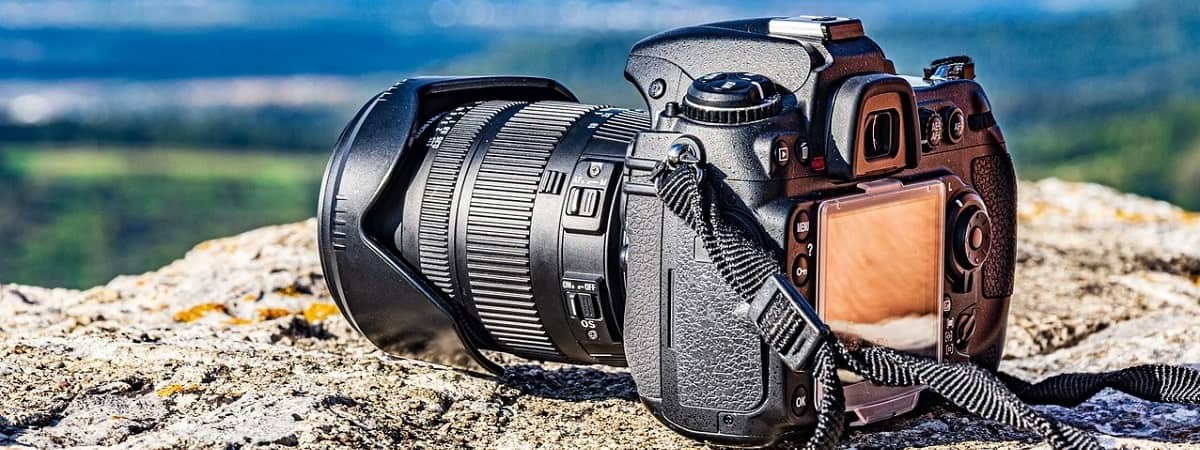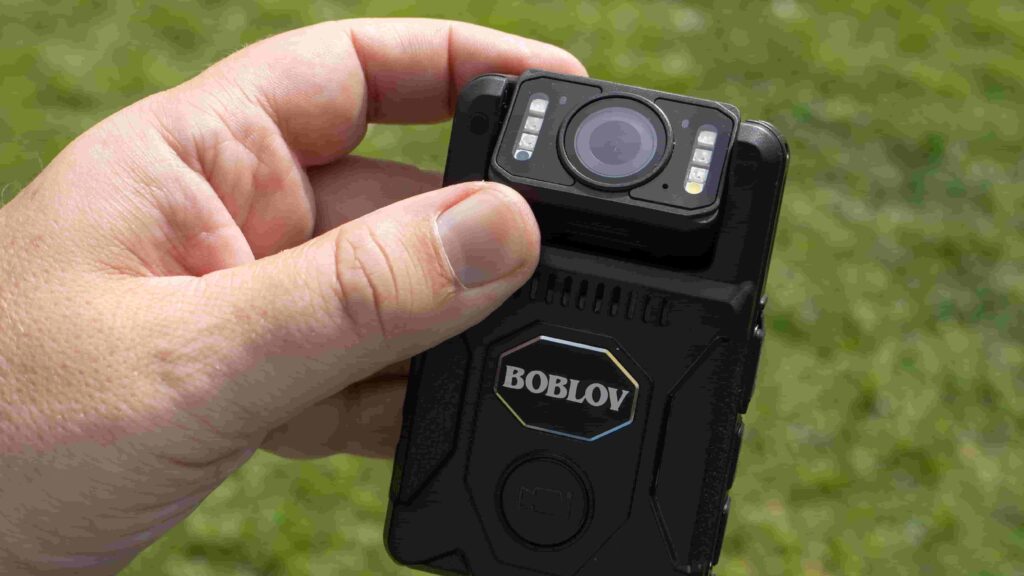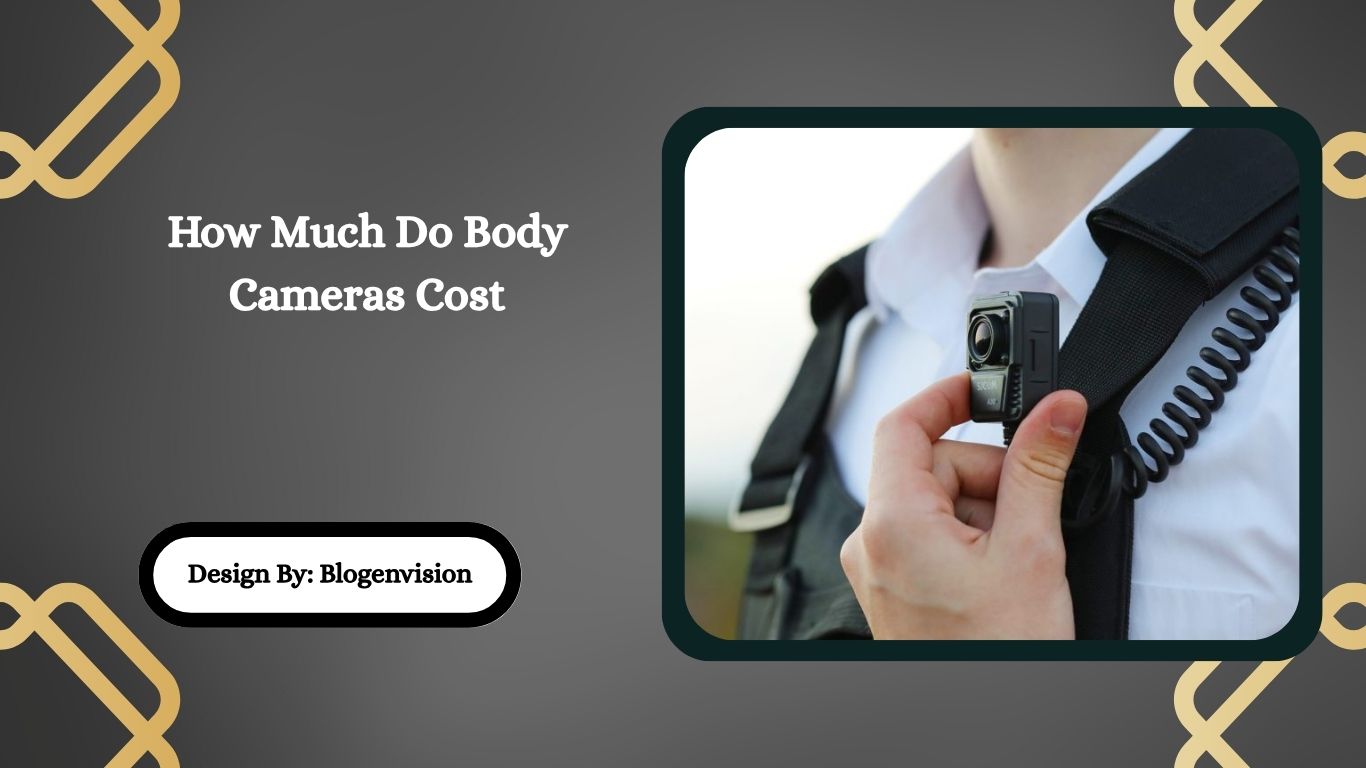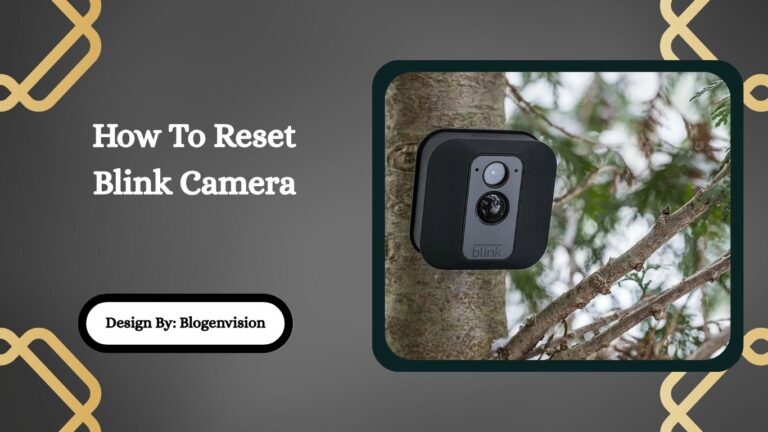How Much Do Body Cameras Cost – Detailed Price Guide!
Body cameras cost between $50 to over $1,000, depending on features, video quality, and usage. Pricing also includes potential cloud storage subscriptions and accessories, especially for law enforcement and professional use.
Body cameras have become essential tools in law enforcement, security, and even personal protection. Whether you’re a police department, private security firm, or an individual wanting extra accountability, knowing the price range is crucial before buying. So, how much do body cameras cost in 2026? Let’s break it down.
Average Cost of Body Cameras
The price of body cameras varies widely based on features, video quality, storage options, durability, and brand reputation. Here’s a general cost breakdown:
| Type | Price Range | Common Use |
| Basic Consumer Body Cameras | $50 – $150 | Personal use, cyclists, delivery workers |
| Mid-Range Body Cameras | $150 – $300 | Small businesses, security guards |
| Professional-Grade Body Cameras | $300 – $600 | Law enforcement, large organizations |
| Enterprise/Smart Body Cams | $600 – $1,000+ | Police departments with cloud features, AI tagging |
Factors That Influence Body Camera Prices

1. Video Quality
Higher video resolution (1080p or 4K), frame rates, and night vision support usually mean a higher price. Entry-level models may offer only 720p recording.
2. Storage Capacity
Internal storage ranges from 8GB to 128GB. Some models use removable microSD cards, while higher-end units offer encrypted onboard storage and cloud syncing.
3. Battery Life
Longer battery life is essential for professionals. Budget models may last 3–5 hours, while high-end options can last up to 12+ hours on a single charge.
4. Durability & Water Resistance
Professional-grade body cameras are often IP65/IP67 rated and can withstand harsh weather, physical impact, and water exposure.
5. Software & Cloud Access
Some high-end models include cloud storage, GPS tracking, automatic upload features, and AI-based evidence tagging. These features increase the overall cost significantly.
Body Camera Pricing by Brand
Axon (formerly TASER)
- Price Range: $500 – $900+
- Known for top-tier police-grade models like Axon Body 4.
- Includes cloud services and evidence management tools (additional subscription fees).
BOBLOV
- Price Range: $80 – $250
- Offers consumer-friendly and security-grade body cameras.
- Known for affordability and decent build quality.
REXING
- Price Range: $120 – $280
- Popular among security professionals and delivery workers.
- Models often include GPS and night vision.
Wolfcom
- Price Range: $300 – $750
- Police-standard cameras with encrypted storage and rugged design.
PatrolMaster
- Price Range: $150 – $400
- Focused on private security firms and mid-level law enforcement needs.
Subscription Costs for Cloud Services
For law enforcement and enterprise users, the cost doesn’t end with hardware. Many body camera systems offer cloud-based video storage, AI tagging, and compliance reporting. Here’s a rough estimate:
| Service Provider | Monthly Subscription (per camera) |
| Axon Evidence.com | $15 – $50 |
| Motorola CommandCentral | $20 – $60 |
| Utility BodyWorn Cloud | $25 – $70 |
These fees vary depending on storage limits, video retention policies, and support level.
Budget vs. Premium: Which One Should You Choose?
Budget Models ($50–$150)
- Ideal for individuals or small teams
- Useful for delivery drivers, cyclists, and home use
- Basic features only: 720p–1080p, short battery life, limited support
Mid-Range Models ($150–$300)
- Suitable for private security companies
- Better video quality and longer battery life
- Some offer GPS, water resistance, and 64GB+ storage
Professional Models ($300–$1,000+)
- Required for law enforcement and evidence-grade recording
- Include advanced encryption, night vision, GPS, and live streaming
- Typically require a cloud subscription
Are There Any Hidden Costs?
Yes. Here are potential extra costs to be aware of:
- Accessories: Clips, mounts, shoulder straps ($10–$50 each)
- Docking Stations: Multi-camera chargers or upload stations ($100–$500)
- Storage & Licensing: Annual fees for cloud or local storage software
- Data Security Compliance: Encryption, data retention policies may require special software
Best Value Body Cameras
Here are some of the most recommended models in each price category:
| Model | Price | Best For |
| BOBLOV KJ21 | $99 | Personal use, delivery drivers |
| REXING P1 Pro | $159 | Small businesses, guards |
| PatrolMaster 1296P | $220 | Medium teams, decent night vision |
| Axon Body 4 | $799 | Law enforcement, AI features |
| Wolfcom Vision | $650 | High-end police use |
Is It Worth Investing in a Body Camera?

In many cases, yes. Whether you’re using a body cam for security, personal safety, or professional accountability, the investment often pays off by:
- Deterring threats and misconduct
- Providing legal evidence
- Improving transparency and trust
- Enhancing workplace safety
Tips for Buying a Body Camera
- Define your use case: Personal, business, or law enforcement?
- Set your budget: Be realistic about upfront and recurring costs.
- Look for warranty and support: Especially for high-end purchases.
- Check local regulations: Body cam usage laws vary by region.
- Consider storage & upload options: Cloud vs. local storage affects cost and compliance.
FAQs:
1. What are the main features that affect body camera prices?
Key price factors include video resolution, storage size, battery life, durability, and added features like GPS or cloud storage. High-end models also offer encryption, AI tagging, and advanced software for evidence management.
2. Are cloud subscriptions necessary for body camera users?
Not always. Personal and budget models use local storage. However, professional and law enforcement users often need cloud storage for evidence retention, sharing, and legal compliance, which involves monthly or annual subscription costs.
3. Can body cameras be used without breaking privacy laws?
Yes, but it depends on regional laws. Public recording is usually allowed, but private settings may require consent. Users should review local regulations to avoid legal issues related to recording audio or video.
4. Are body cameras only for law enforcement?
No, many individuals and private sectors use them too. Delivery drivers, cyclists, security guards, and even teachers or healthcare workers are adopting body cams for protection, accountability, and conflict resolution.
5. How long do body cameras store footage?
Storage capacity varies by device. Footage can be stored locally on 8GB–128GB devices or uploaded to the cloud. Retention time depends on recording quality, storage space, and organization-specific policies.
Conclusion:
Body camera prices vary based on features, durability, and intended use, ranging from budget-friendly consumer models to advanced law enforcement tools. While initial costs may seem high, the investment offers significant benefits in safety, evidence collection, and accountability. Before buying, it’s essential to assess your needs, legal obligations, and long-term storage options. Whether for personal safety or professional use, choosing the right body camera helps ensure both protection and peace of mind in everyday situations and critical encounters.
Related Post:
- Security Camera Cable Types – Guide to Choosing the Right Cable!
- How To Get Out Of A Camera Speeding Ticket – Full Guide!
- How To Beat A Speed Camera Ticket – Legal Tips & Proven Tactics!
- Is Canon Rebel T6 A Good Camera – An In-Depth Review!
- Fixed Wing Drone With Camera – Ultimate Guide for Aerial Photography!







